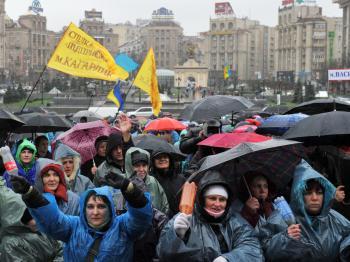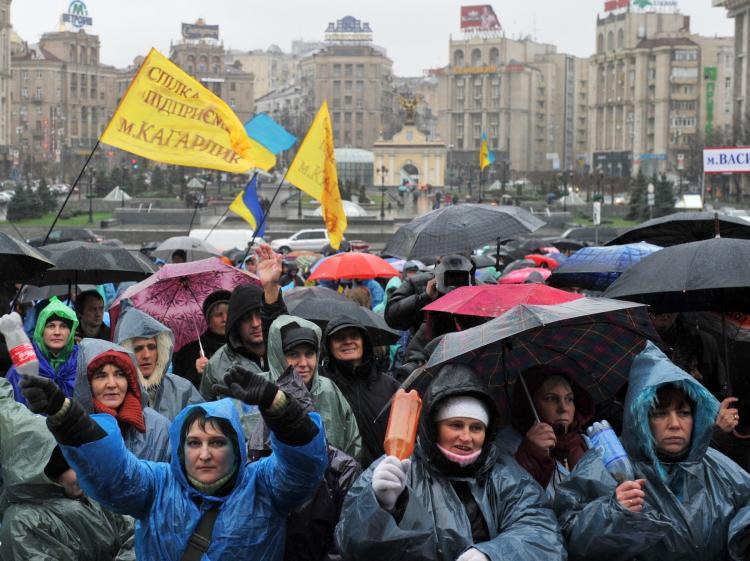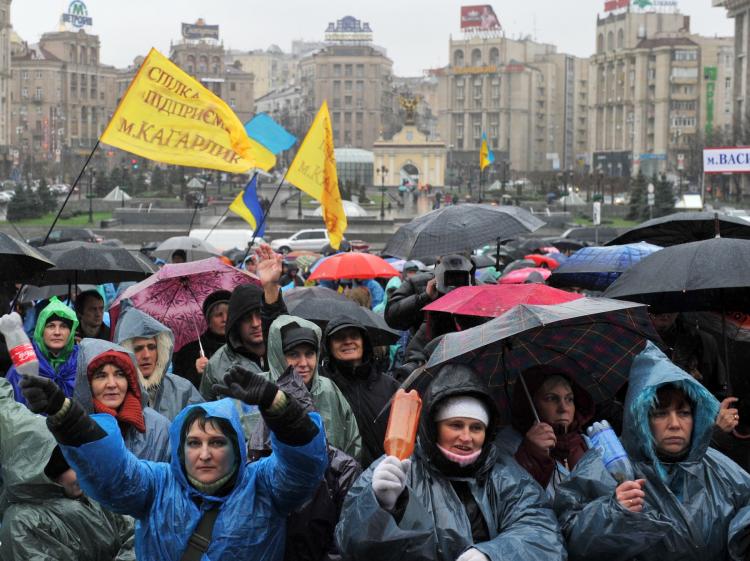KYIV, Ukraine—Small- and medium-sized business owners in Ukraine are having a hard time staying afloat as they experience the first crush of the country’s burdensome new tax code. Many have already been forced to close their doors or are heading slowly toward failure.
Last winter, the Ukrainian Parliament adopted a new tax code that expands the powers of the internal revenue service and reduces the rights of taxpayers by adding a lot more red tape. As a result, entrepreneurs are paying much higher taxes and are spending more time doing paper work than running their businesses. The new code came into effect on Jan. 1.
Vitaliy Bogdanov, 56, has been in private business for eight years. After a terrible first quarter in 2011, he thinks his business might have to close down by the end of the year.
Bogdanov sells printing materials to wholesale clients and has about 800,000 hryvnias (US$100,000) in trade volume per month. Last year, he felt that his business was on solid ground and was on target for good growth after he received a bank loan to buy a van to transport his goods.
However, at the end of the first quarter, heavy taxes left him with only enough money to service the loan, and nothing more. “After all, I have to pay for a house and food as well as take finance out from working assets, so this situation can’t last long. … The outlook is dark,” he says.
When the change was first proposed last year, it caused tremendous controversy. Small- and medium-sized businesses owners loudly protested in the streets, resulting in revisions to some of its provisions, but the heart of it remained.
The new code eliminates the simple flat tax system that small- and medium-sized operations used to follow, and incorporates them into a general tax system.
The flat tax cost business owners about 200 to 600 hryvnias ($25-$75) per month, depending on the size and type of business. The idea behind it when it was introduced in 1999 was to reduce opportunities for corrupt tax officials to exploit the business owners. The measure was a boon to small businesses in Ukraine.
Bogdanov says that by making the change, it basically comes down to a question of “whether we will continue paying taxes and contributing to the state budget, or fail.”
“From all appearances it is coming to the point when business owners like me will fail,” he says.
The self-employed man who has no employees says he cannot see any logical reason why the government should have changed the code, unless officials are interested in increasing the country’s unemployment rate, he said sarcastically.
The official unemployment rate in Ukraine is about 8.8 percent, compared to 6.4 percent in 2008 before the economic crisis, according to the World Bank.
Bogdanov says the general tax system is absurd because it makes him spend more time filling out paper work and double-checking that everything is in place, than he spends finding clients and expanding his business. He says that everyone who works legally now has to pay more taxes than before.
According to the World Bank’s “Doing Business 2011” report, Ukraine is the third hardest place in the world to file taxes because of its extremely complicated tax system.
Ukrainian officials have said that a new tax code seeks to holistically reconstruct the country’s tax system. The main purpose behind the change was to try to capture the lost revenue from larger businesses that were getting away with claiming to be smaller operations.
Many business owners, including Bogdanov, view the government’s so-called improvements dimly, saying officials couldn’t come up with another solution so they simply imposed more restrictive measures.
Small and medium businesses account for about 10 percent of Ukraine’s gross domestic product, compared to 60 to 90 percent in developed countries.
Oksana Prodan, head of the All Ukrainian Association of small and medium businesses, says that in addition to the new tax code, low buying power, and small profits especially in some parts of the country, are making the situation for small- and medium-seized businesses even worse leading them to close enterprises.
Sergey Mandrichenko, who has been running a pharmaceutical business for the last 15 years, says that officials are used to governing by administrative rules and do not appear to understand how to create a country with a market-driven economy.
“It comes from a Soviet-style mentality of how to monopolize and how to control everything,” says Mandrichenko.






